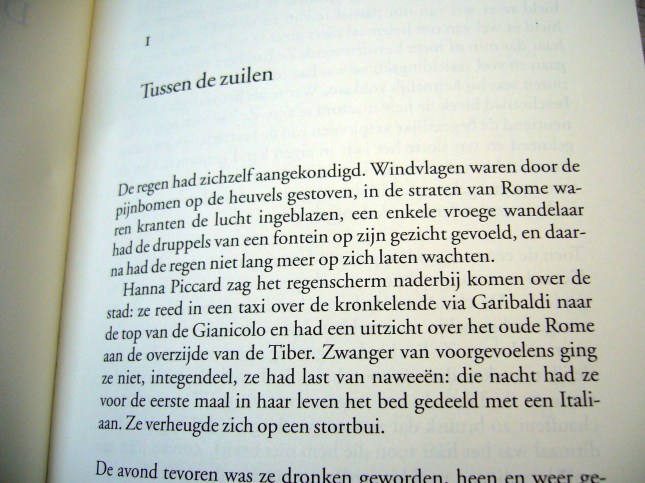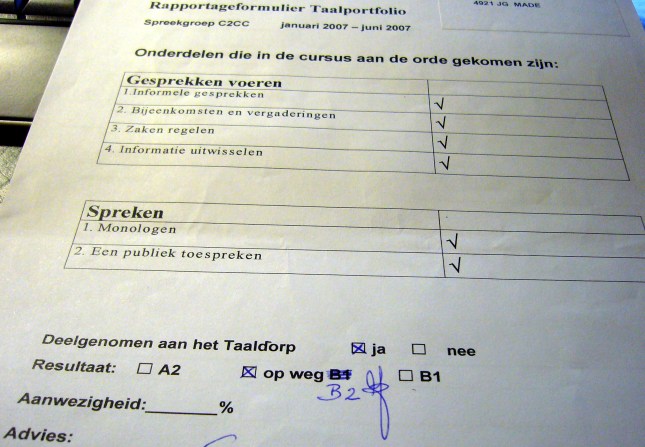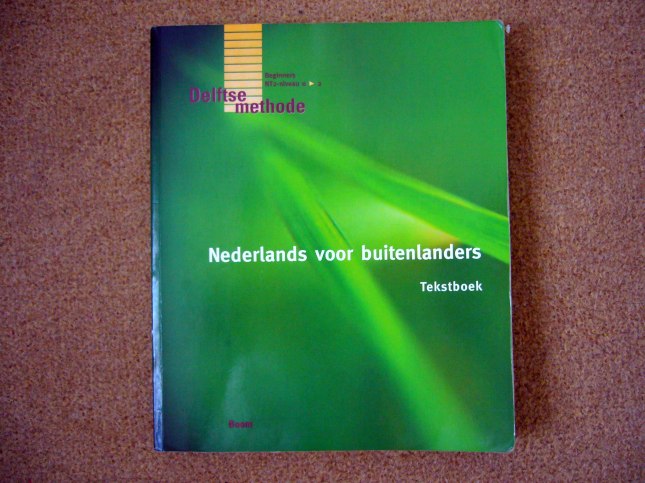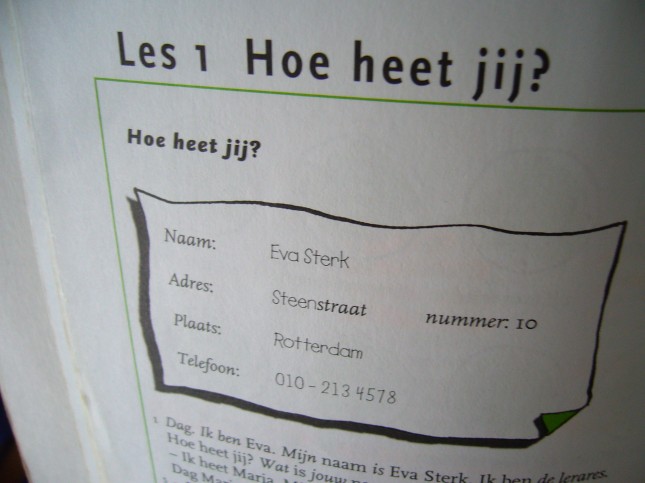I came to the Netherlands a few days before Romania joined the EU, as I was telling you in the previous post. My only knowledge of the Dutch language was, as I wrote there, only what I had learned by myself from a book and a CD.
Ana, a Romanian friend (now living in New York – this would be the moment to share her blog, except she doesn’t have one :), but believe me, it would be very interesting!) had told me about a Dutch book: “Cirkel in het gras” and I bought this book soon after I arrived here, thinking to give it a try and otherwise, read it later, after I would have learned Dutch.
 Somehow, reading this Dutch book was doable, I had several words on each page which I didn’t recognize and I would look them up in a small Dutch-Romanian dictionary (a gift from my friend Lia, still living in Bucharest, no blog either, but very suitable for one :)). The rest of the text I understood by association, comparisons with all the languages that I speak well or vaguely and probably by understanding the context. Recognizing words in this foreign language was every time a small victory.
Somehow, reading this Dutch book was doable, I had several words on each page which I didn’t recognize and I would look them up in a small Dutch-Romanian dictionary (a gift from my friend Lia, still living in Bucharest, no blog either, but very suitable for one :)). The rest of the text I understood by association, comparisons with all the languages that I speak well or vaguely and probably by understanding the context. Recognizing words in this foreign language was every time a small victory.

Being able to read in a language I hardly knew was quite cool, but speaking the same language was something else. In my opinion, I did not speak Dutch. I was the only one who thought so. Everyone around me was trying to convince me I could speak Dutch, if only I dared. I thought that these people must be crazy :). I just couldn’t accept that I was expected to speak a language after a few lessons read in a book.
But I do think that I was a sort of a sponge at the time and I was able to learn a lot of Dutch words by listening and watching television and reading the subtitles. I also asked the meaning of words I didn’t understand.
After less than two months in the Netherlands we considered it was time for me to get some Dutch lessons. There was a school nearby where I could do this but first they had to test me in order to determine the level I should start from. This was a bit strange for me, I was convinced that I was a beginner, no doubt about it. I was scheduled for a total of 5 tests: listening comprehension, writing, reading comprehension and two kinds of speaking. I did my best. Later we had a meeting with one of the teachers who was going to give us the results. She sat down and asked me: “What are you here for?”. I was puzzled. She went on: “Your scores are so high that there is not much we could teach you. Why don’t you just speak Dutch?” I don’t recall what I answered exactly but it must have been something like: “I cannot speak a language I haven’t learnt!” She probably thought something was very wrong with me.
I have found the results of that test and see that I had a 4 for listening, writing and reading and a 2 for speaking (unfortunately I don’t know which scale was used, but 2 was the lowest score of the four).

In the end I was able to attend lessons once a week for 2,5 hours each. There was a group of students I joined, most of them were Polish, the others were all from different countries. The lessons were diverse, but not what I felt I needed. I wanted to learn how to write in Dutch, grammar rules, words – the heavy stuff, from the beginning. Maybe the other students had already had all that in previous lessons. It came as a big surprise to them when they heard that I was beginning my study of the Dutch language together with them, who had already attended several courses, starting at lower levels. I was just as surprised. We discussed lyrics of popular Dutch songs, we were commenting pictures, we had to prepare a speech on a subject of our own choice, we exercised. I didn’t quite feel this is the right way to start learning a language, but this wasn’t the aim of the course either, as it was not meant for beginners like me.
In the end, 4 months later, I finished the course. My exit level was “on the way to B2”, the levels being A1, A2, B1, B2, C1 and C2 (this last one is the highest).

– to be continued –











































 Source:
Source: 































